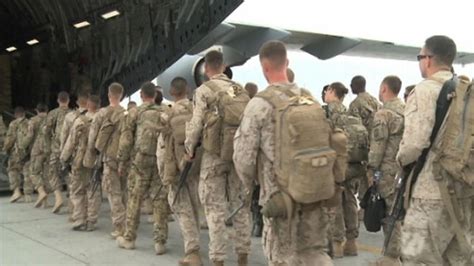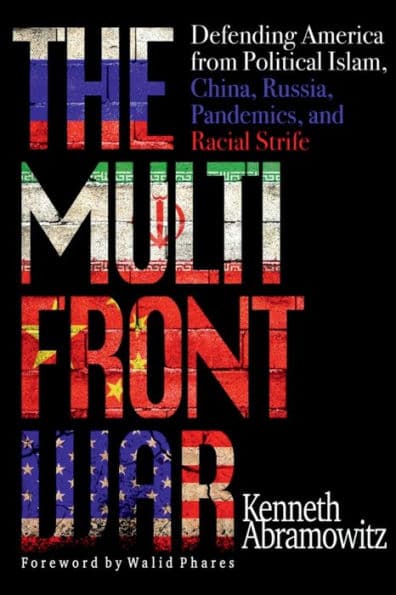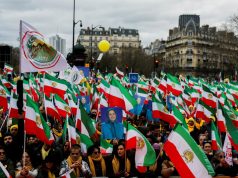.By Rachel Avraham
On July 8, 2021, US President Joe Biden announced that the United States will be withdrawing its military forces from Afghanistan by the end of August, after the US was in the war-torn country for 20 years. The United States had initially entered into Afghanistan because the Taliban-run government was hosting Al Qaeda, which utilized the country as a base from which to wage the September 11 terror attacks that slaughtered nearly 3,000 American citizens in a single morning. The question remains, how will this withdrawal impact the State of Israel, and how will Iran, Turkey, and others take advantage of it?
Already, there are many in Israel who are wary about America’s withdrawal from Afghanistan. In a recent report published by the INSS, which usually publishes the position of the Israeli government, Yoram Shweitzer and Oded Eran argued: “The vacuum that will be left by the withdrawal of American forces from Afghanistan will pose a political and military challenge for countries in the region surrounding Afghanistan and Pakistan. The possibility that the immediate internal struggle between the Taliban and the current government in Kabul will seep outside the borders of Afghanistan, and would be reflected in regional and global terrorist activity, is a likely threat that demands preparations by neighboring countries and beyond.”
Prominent Middle East scholar Dr. Mordechai Kedar concurred: “It’s not a withdrawal. It’s running away. It is a total collapse of the American policy, vis-à-vis radical Islam. Running away from Afghanistan plus appeasement vis-à-vis Iran and Turkey emboldens the radicals in the Islamic world and exposes America as fatigued. Once a superpower becomes passe, it puts Israel, Saudi Arabia, Europe, and America in real danger because of the encouragement that this policy gives to the radicals of Islam, both from the Sunni and Shia world.”
“The Iranian regime cannot wait for the US withdrawal,” he added, noting that Iran has already set up its own militia in Afghanistan. “They are seeking hegemony in Afghanistan. They already plan how to take advantage of the Afghani resources, especially the mining of metals. Erdogan also feels much more comfortable with Biden compared to his situation in the Trump era. Hamas feels much more comfortable. China is very satisfied, too, because Afghanistan is a neighbor of China. The Chinese definitely don’t like to see the Americans right on their borders. The Western situation in general becomes more and more problematic.”
According to Dr. Kedar, “Another important thing is what happens inside Iran. There is a big wave of riots inside Iran against the government. They want to fragment the state into an ethnic state. The Ahwaz, Baloch, Kurds and maybe more are all protesting. Yet at this critical time, the US administration wants to nevertheless empower this regime.”
Iranian political theorist Dr. Reza Parchizadeh noted, “The unilateral and total American withdrawal from Afghanistan, which looks very much like its withdrawal from Vietnam over four decades ago, will embolden the nefarious actors to dramatically increase their interference in the affairs of Afghanistan in the hopes of turning it into a satellite state or a base of operations that is disruptive to the liberal world order.”
According to Dr. Parchizadeh, “The Iranian regime is traditionally focused on the Hazara population who are Shiites, like the majority of Iranians. These are the same people whom the regime recruited as mercenaries in the form of the Fatemiyoun Brigades to fight in the Syrian Civil War to keep Assad in power. But the Iranian regime has also been considering coopting the Taliban to advance its influence in Afghanistan. The hosting of Taliban leaders in Iran during the past few years as well as the more recent favorable positions of major state-affiliated newspapers in Iran strongly indicate that the Iranian regime has made considerable investments in the Taliban. As a rule of thumb, as long as the common enemy is the United States, Islamists of all stripes will be more than happy to work together.
The Sunni Taliban in Afghanistan and the Shia regime in Iran are no exceptions. As such, by pulling out of Afghanistan in this manner and by leaving no reasonable safeguards behind, the US government is throwing twenty years of the War on Terror and nation building in Afghanistan to waste.”
Sirwan Mansouri, a Kurdish journalist based in the Middle East, concurred with Parchizadeh: “Iran has a close relationship with the Taliban and has given them money and weapons in the past, so US withdrawal can also increase the influence of Iran in Afghanistan too because the central government is weak and the Taliban is going forward to control more parts of Afghanistan as the US is decreasing its number of troops.”
Aside from encouraging Iranian hegemony in the region, America’s withdrawal from Afghanistan is going to undermine America’s efforts against Al Qaeda. As MEMRI recently reported, Zabihullah Mujahid, the spokesman of the Islamic Emirate of Afghanistan (The Afghan Taliban organization), already refused to denounce their ties to Al Qaeda or any other Muslim group: “The relationship between Muslims in the world is based on faith. This is not logical at all (to cut ties with Al Qaeda).” This comes as the Taliban recaptured 125 districts in Afghanistan over the past two months and recently declared that women cannot sing nor be President of Afghanistan.
Meanwhile, as Iran and the Taliban try to take advantage of America’s withdrawal from Afghanistan, Turkey is trying to do likewise. As Turkish journalist Rafael Sadi noted, “You must understand that Erdogan is so clever to convert every situation in his favor. The internal situation for Erdogan is quite delicate and he needs to strengthen his status positively. The Afghanistan case is a very good bonus given to him by the Biden administration. He will use the existence of the Turkish Army in a Muslim country in his favor and be the hero who saves the Muslim Brotherhood. I am sure that the Afghan people will be happy to see Turkish soldiers in Afghanistan instead of the Americans. They will start building schools, hospitals and a lot of mosques in the name of Erdogan. The money will come from the Americans and many Turkish construction companies will get richer. Of course, Erdogan’s people will get richer. It’s a win-win situation for Erdogan.”
Mendi Safadi, who heads the Safadi Center for International Diplomacy, Research, Public Relations and Human Rights, added: “The race between Turkey and Iran for the heart of the Islamic world is part of their effort to rebuild their empires. Despite cooperation between Turkey and Iran, there is a struggle due to the interests of their countries. Like Iran, Turkey is recruiting mercenaries in Syria, Libya, and Afghanistan, and is also creating cells in Europe and across the Muslim Middle East. It is true that Turkey still does not have the chutzpah that characterizes Iran, but with a wide deployment, this chutzpah will come with the time. In this situation, Israel will remain at the forefront in the War against Terror, but an American withdrawal from the region leaves Israel as easy prey and the frequency of attacks targeting Israel will increase.”
However, the State of Israel is not the only country wary about America’s withdrawal, as China is also concerned by it, even though they don’t like to have America as a neighbor. According to MEMRI, Alexey Maslov, Acting Director of the Institute for Fear Eastern Studies at the Russian Academy of Sciences, declared: “It is unlikely that China will deploy its troops in Afghanistan after the withdrawal of the Americans because Beijing doesn’t have any experience in operations of this kind. Only the US, Russia, and the UN Blue Helmets possess such experience. China is very concerned about stability in the Afghan state because the transport corridor to Pakistan, financed by Beijing, passes through it. However, since Pakistan is leaving this project, the Chinese participation in it will be suspended, too. Thus, for China, Afghanistan is only important now security-wise. The Chinese need to curb drug trafficking from that state. Beijing is also concerned about support for Islamic extremism in China.” The Xinjian province in China is Muslim and already possesses separatist tendencies.
Sources:
The US Withdrawal from Afghanistan Portends a Vacuum and Uncertain Future | INSS
Iran opens a new sectarian front in Afghanistan | Arab News
 Rachel Avraham is a political analyst working for the Safadi Center for International Diplomacy, Research, Public Relations and Human Rights, which is run by Mendi Safadi, a former Likud Candidate for the Knesset and a former chief of staff of former Israeli Communication Minister Ayoob Kara. Since 2012, she has been working as an Israel-based journalist and writer, covering Iran, Kurdistan, Turkey, Iraq, Syria, the Israeli-Palestinian conflict and other developments in the greater Islamic world.
Rachel Avraham is a political analyst working for the Safadi Center for International Diplomacy, Research, Public Relations and Human Rights, which is run by Mendi Safadi, a former Likud Candidate for the Knesset and a former chief of staff of former Israeli Communication Minister Ayoob Kara. Since 2012, she has been working as an Israel-based journalist and writer, covering Iran, Kurdistan, Turkey, Iraq, Syria, the Israeli-Palestinian conflict and other developments in the greater Islamic world.
Her articles have appeared in the Washington Times, the Hill, Front Page Magazine, the Daily Wire, the Christian Post, the Baltimore Jewish Times, the Jerusalem Post, Israel Hayom, Ahval and many other publications across the globe. She received her MA in Middle Eastern Studies from Ben-Gurion University. She got her BA in Government and Politics with minors in Jewish Studies and Middle Eastern Studies from the University of Maryland at College Park.
Ken`s new book The Multifront War is now available in 190 countries via Amazon and also on BNs in the US. Buy it now!
.
.
.






